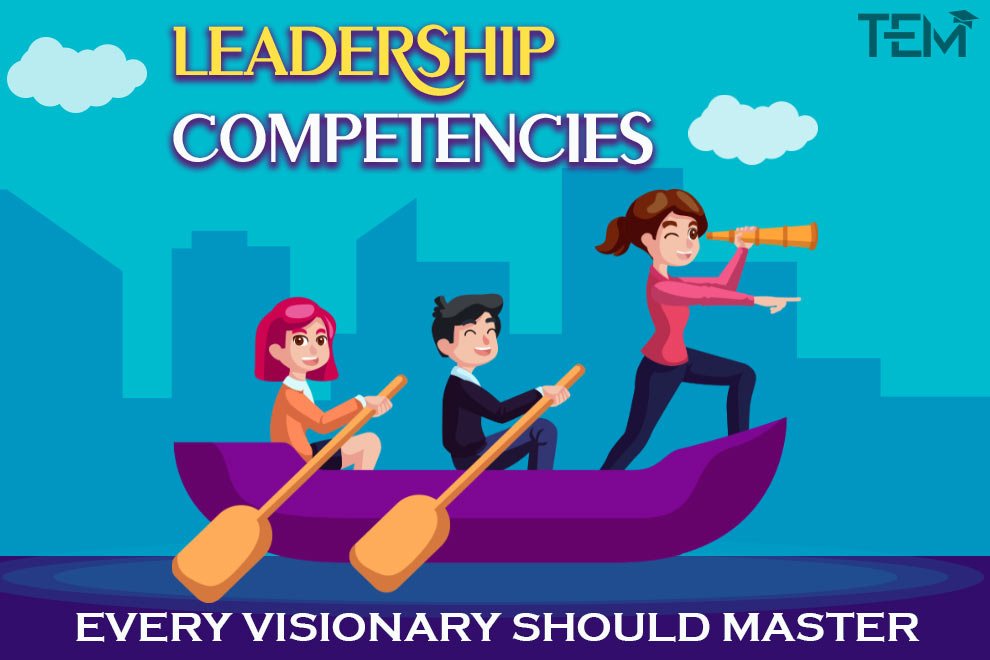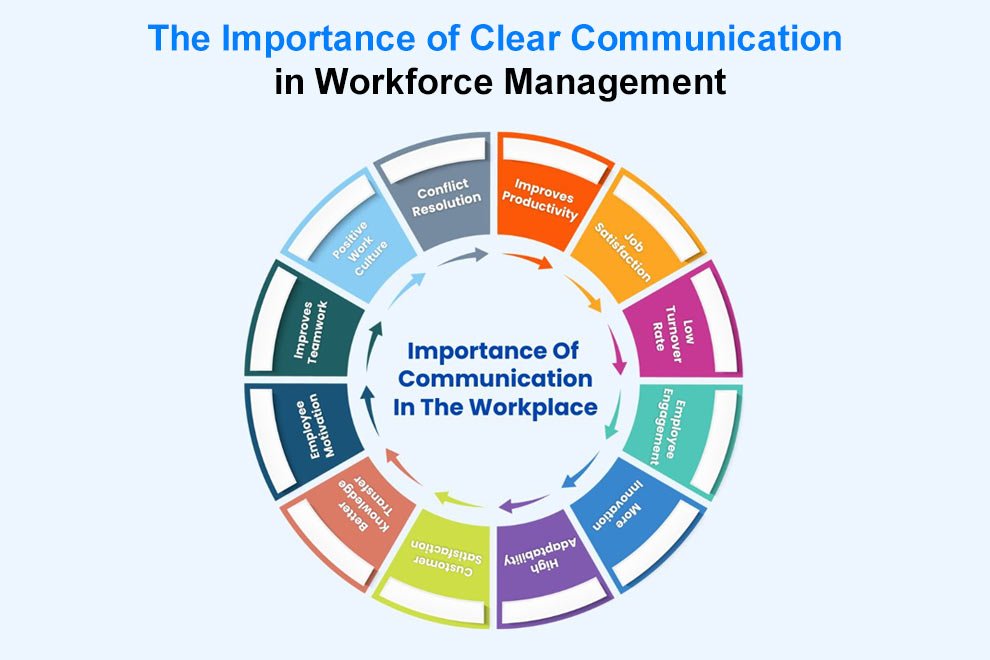In today’s dynamic business environment, leadership competencies are no longer a nice to have but a necessity.
These competencies are the skills, knowledge, and behaviors that enable individuals to lead teams and organizations effectively. They encompass a range of abilities, from strategic thinking and decision-making to communication and relationship-building.
By honing your leadership competencies, you can empower your team, foster a positive work environment, and drive success for your organization.
So, stay tuned to learn more about the key leadership competencies that matter most in today’s workplace!
The Following Is an In-Depth Guide to Leadership Competencies
Charting the Course: Unveiling Leadership Competencies and Its Benefits
Have you ever wondered what makes a great leader stand out? It’s leadership competencies. These are the skills and behaviors that enable you to lead effectively. Now, let’s dive into their benefits:
1. Boosts Team Performance
When you exhibit strong leadership competencies, your team’s productivity skyrockets. You set clear goals and inspire everyone to reach them. Imagine you’re a football coach. Your ability to strategize and motivate your team leads to winning matches. Similarly, strong leadership competencies help you set clear goals and rally your team to achieve them, enhancing overall performance.
2. Enhances Decision-Making
You make informed decisions swiftly, which is crucial in today’s fast-paced world. This decisiveness also instills confidence in your team. Think of a chef in a busy kitchen. Quick, decisive actions are needed to deliver top-quality dishes. As a leader, making informed and timely decisions helps your team trust your judgment and keeps projects on track.
3. Improves Communication
Clear communication is key. Firstly, you articulate your vision and listen actively, fostering an environment of mutual respect and understanding. Learn how to speak more professionally to improve efficiency and help your team members grasp your ideas swiftly and accurately. Consider, for example, a successful podcast host known for engaging interviews. This is akin to a leader who communicates effectively, ensuring that the team’s objectives are understood and that everyone feels heard and valued.
4. Encourages Innovation
By valuing creativity, you encourage your team to bring forward innovative solutions. Consequently, this keeps your organization ahead of the curve. Take, for instance, the example of a tech startup founder who encourages creative thinking and employs transformative leadership practices. As a result, this leads to groundbreaking products.
Moreover, by fostering a culture that values innovation and integrates principles of transformative leadership in business education, you empower your team to come up with solutions that keep your organization competitive.
5. Builds Trust
Consistency in your actions builds trust. Furthermore, your team knows what to expect and feels secure in their roles. For instance, reflect on a trusted news anchor who consistently delivers reliable information. Similarly, as a leader, being consistent in your actions and decisions builds a similar trust with your team, consequently creating a stable and reliable work environment.
14 Leadership Competencies Every Leader Must Have
Now that you know the benefits of having leadership competencies, Let’s journey through the leadership competencies needed to lead your organization.
1. Social Intelligence
Why should leadership competencies include social intelligence? Imagine you’re leading a team. You notice tension brewing. What do you do? Social intelligence guides you to navigate this situation effectively. It’s the skill that lets you read the room, understand emotions, and respond appropriately. It’s what makes you not just a manager, but a true leader.
Consider a leader who lacks this skill. They might miss cues of dissatisfaction, leading to unresolved issues and a disengaged team. But with social intelligence, you can spot these cues early. You can address concerns before they escalate.
2. Problem-Solving
Imagine facing a complex challenge. Without problem-solving skills, you’re stuck. But with them, you navigate through obstacles effectively. Leaders who excel at problem-solving foster a proactive environment. They anticipate issues and devise innovative solutions. This ability is not just about fixing what’s broken; it’s about identifying opportunities for improvement and growth.
Consider a sales manager whose company is in a fix due to low sales. To solve this issue, she must analyze the data, engage her team, and identify the root causes. Now, since she is equipped with the skill of being a good problem solver, the sales rebounded, and the team’s spirit soared.
3. Conflict Management
Imagine steering a ship through a storm. Conflict management is your compass. It guides teams through the choppy waters of disagreement to collaboration’s calm seas. Leaders with this skill develop a culture where diverse ideas thrive. They turn clashes into opportunities for growth. Effective conflict management also means less time spent on disagreements. It shapes a resilient, adaptable, and high-performing team.
Take, for example, a project team with differing views on a launch strategy. Without conflict management, this discord could derail progress. However, a leader adept at this competency can navigate the dispute. They encourage open dialogue, ensuring all voices are heard. The result? A well-rounded strategy that incorporates diverse perspectives, boosting innovation and buy-in.
4. Making Effective Decisions
Why is decision-making important in leadership competencies? Imagine you’re at a senior post at a company. Your choices shape the future. They impact productivity, morale, and the bottom line. Good leaders don’t just make decisions; they make the right ones. Decision-making is a skill that turns challenges into opportunities.
For instance, a leader’s quick call during a crisis can save the day, transforming chaos into order and loss into gain. Moreover, decision-making fosters trust. Employees rally behind a leader who navigates uncertainty with confidence. This trust translates into a stronger, more cohesive team. Additionally, a united team is the backbone of any successful business.
5. Sharing the Same Vision
Having a shared vision is a game-changer for any company. Why? Because it aligns everyone’s efforts toward a common goal. Imagine a rowing team; if one person rows in a different direction, the boat goes nowhere. Similarly, in a company, when you share a vision, you row together toward success.
A shared vision fosters unity. It turns individual tasks into steps toward a bigger picture. This unity boosts morale and drives productivity. It’s not just about working; it’s about building something together. And that’s powerful.
Take Google, for instance. They started with a shared vision: to organize the world’s information. This vision guided their strategies and decisions. Now, look at them! They’re a tech giant, all because they rowed in the same direction.
6. Change Management
Change is the only constant in today’s fast-paced business world. Embracing change management as a part of leadership competencies is crucial. It equips you with the ability to steer your company through transitions smoothly. Moreover, it ensures that changes are implemented effectively and sustainably. Furthermore, it enhances employee engagement. Teams feel supported and are more likely to embrace new directions.
Consider Apple’s transformation under Steve Jobs. His leadership redefined the company’s direction, leading to groundbreaking innovations. Similarly, change management can help your company adapt and thrive. It allows you to anticipate market trends and respond proactively.
7. Innovation
Innovation propels companies forward, fostering growth and adaptability. Moreover, innovation isn’t just about new ideas; rather, it’s about bringing those ideas to life and creating value for customers and stakeholders alike. For your company, embracing innovation means staying ahead of the curve. Consider Elon Musk, a leader who embodies innovation. His ventures, from SpaceX to Tesla, demonstrate how innovative thinking can disrupt industries and drive progress.
Innovative leaders inspire teams, encourage creative problem-solving, and navigate through change with agility. Additionally, they don’t shy away from challenges; instead, they view them as opportunities to improve and excel.
8. Interpersonal Skills
In leadership, interpersonal skills are not just nice to have; they’re essential. Moreover, they’re also a part of the core leadership competencies that make you stand out. Why? Because they’re about connecting with people. Additionally, let’s face it, a company thrives on relationships.
Imagine a leader named Alex. Alex listens, really listens, and communicates clearly. Consequently, this builds trust. As a result, teams feel valued and understood. Consequently, they collaborate better and reach goals faster. Now, that’s good for business. Effective leaders, like Alex, navigate challenges with empathy. They not only resolve conflicts but also inspire teams. Consequently, this boosts morale and productivity. It’s simple: better interpersonal skills lead to a stronger, more cohesive company.
9. Emotional Intelligence
Imagine a leader who can sense team stress and address it head-on. Consequently, this approach doesn’t just ease tensions; it boosts morale and productivity. Now, consider conflict resolution. In this regard, a leader with high emotional intelligence navigates disputes with finesse, turning potential setbacks into opportunities for growth. Additionally, they aim to find solutions that work for everyone.
So, why does this matter for a company? Simply put, leaders like these create a positive, supportive culture. Moreover, they inspire loyalty, reduce turnover, and ultimately, drive the company’s success. Emotional intelligence separates good leaders from great ones and can propel a company from average to exceptional.
10. Industry Knowledge and Expertise
Having industry knowledge isn’t just a bonus; it’s a must-have in leadership competencies. Why? Because it’s the compass that guides a company through the competitive landscape. It’s what sets leaders apart and turns challenges into victories. The more knowledge you have about your field, the better you perform.
Without deep tech industry insights, you’d miss trends and fall behind. But with that expertise, you can navigate market shifts, outsmart competitors, and seize opportunities. This savvy moves your company forward, boosts innovation, and keeps customers returning.
11. Coaching Ability and Trustworthiness
You’re a leader, and you aim to inspire, right? Coaching ability and trustworthiness are crucial leadership competencies. They’re the bedrock of a thriving company culture. Imagine a coach in sports. They nurture talent, refine skills, and build winning teams. Similarly, in business, leaders with coaching skills empower employees, fostering innovation and driving success.
Trustworthiness cements this process. It creates a safe space for risk-taking and growth. Employees feel valued and give their best. The result? A resilient, agile company.
12. Agility
You’re steering a company, and suddenly, the market shifts. Agility in your leadership competencies is your lifeline. It’s about swift adaptation to change, making informed decisions on the fly, and keeping your team aligned with evolving goals. Think of a tech startup navigating rapid innovation cycles. Agile leaders pivot strategies, ensuring the company not only survives but thrives.
They spot opportunities, dodge setbacks, and maintain momentum. Agility means resilience, and that’s invaluable for any business. It’s the difference between sinking and sailing in today’s fast-paced world.
13. Inclusiveness
Inclusiveness is a key skill in leadership competencies. Moreover, it’s about valuing every voice, and ensuring everyone feels heard and respected. Furthermore, this isn’t just nice to have; it’s a business imperative.
Additionally, inclusive leaders draw on diverse perspectives, sparking innovation and driving better decisions. For instance, consider a global company launching a new product. An inclusive leader gathers insights from a diverse team, reflecting varied customer needs.
Consequently, this approach leads to a product that resonates with a broader audience, boosting sales and brand loyalty. Thus, inclusiveness isn’t just about fairness; it’s about smart business. Ultimately, it turns diversity into a competitive edge. So, embrace it, and watch your company soar.
14. Organizational Citizenship Behavior
Lastly, in the list of leadership competencies we have Organizational Citizenship Behavior (OCB) is a gem in leadership competencies. It’s about going beyond the call of duty. OCB fosters a positive work environment, boosting morale and productivity. Imagine a team where everyone helps each other, shares resources, and volunteers for extra work.
This behavior reduces the need for supervision. It also improves social interactions, making the workplace a community. Now, think of a company that embraces OCB. Here, employees willingly give feedback, leading to cost-saving innovations.
Conclusion
Leadership competencies are more than a checklist; they’re your catalyst for change. They equip you to lead with conviction, turning obstacles into stepping stones. These 14 competencies we’ve explored? They’re your toolkit for success. Now, it’s your move.
Take these competencies, apply them, and watch as your team reaches new heights. Don’t just lead; inspire. Don’t just manage; empower. Seize these competencies, and become the leader who not only sets the direction but also drives the momentum.
Thanks for reading!










